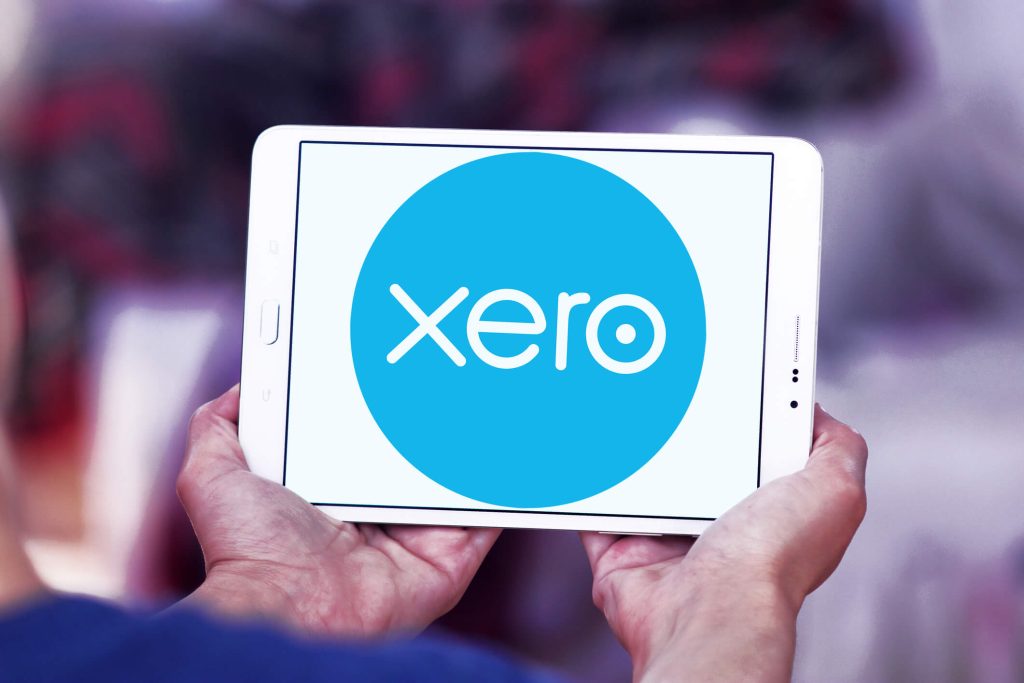
By admin May 22, 2024
In the world of accounting software, Intuit QuickBooks has long been a trusted and popular choice for small businesses. However, news of its discontinuation has left many users wondering about the future of their financial management systems. In this comprehensive guide, we will delve into the reasons behind the discontinuation, explore the impact on small businesses and users, provide alternatives to Intuit QuickBooks, offer a step-by-step guide for migrating to a new system, highlight key features and benefits of recommended alternatives, address common concerns and FAQs, present expert opinions and industry reactions, and provide tips for a smooth transition and minimizing disruption.
Understanding the Reasons behind the Discontinuation
Intuit QuickBooks has been a staple in the accounting software market for decades, but even the most successful products have a lifespan. The decision to discontinue Intuit QuickBooks stems from a variety of factors. One of the primary reasons is the rapid advancement of technology and the need for more sophisticated features and capabilities. As the demands of small businesses evolve, Intuit QuickBooks may no longer be able to keep up with the changing landscape.
Another factor contributing to the discontinuation is the emergence of new competitors in the market. With the rise of cloud-based accounting software and the increasing popularity of mobile applications, Intuit QuickBooks has faced stiff competition from companies offering more innovative and user-friendly solutions. In order to stay competitive, Intuit has made the strategic decision to phase out QuickBooks and focus on developing new products that better meet the needs of modern businesses.
Exploring the Impact on Small Businesses and Users
The discontinuation of Intuit QuickBooks will undoubtedly have a significant impact on small businesses and users who have come to rely on the software for their financial management needs. For many businesses, QuickBooks has been the go-to solution for bookkeeping, invoicing, payroll, and other essential accounting tasks. The discontinuation means that these businesses will need to find an alternative solution that can seamlessly integrate with their existing systems and provide similar functionality.
The impact of the discontinuation will vary depending on the size and complexity of the business. Smaller businesses with simpler accounting needs may find it relatively easy to transition to a new software solution. However, larger businesses with more complex financial operations may face greater challenges in finding a suitable replacement and ensuring a smooth transition.
Alternatives to Intuit QuickBooks: A Comprehensive Comparison
Fortunately, there are several alternatives to Intuit QuickBooks available in the market. These alternatives offer a range of features and capabilities that can meet the needs of different types of businesses. In this section, we will provide a comprehensive comparison of some of the top alternatives to Intuit QuickBooks, including their key features, pricing, user reviews, and integration options.
- Xero: Xero is a cloud-based accounting software that offers a wide range of features, including invoicing, bank reconciliation, expense tracking, and financial reporting. It is known for its user-friendly interface and robust integrations with other business tools.

- Zoho Books: Zoho Books is another cloud-based accounting software that caters to small businesses. It offers features such as invoicing, expense tracking, inventory management, and project tracking. Zoho Books also integrates seamlessly with other Zoho applications, making it a popular choice for businesses already using Zoho’s suite of products.

- Wave: Wave is a free accounting software that is ideal for small businesses with basic accounting needs. It offers features such as invoicing, expense tracking, and financial reporting. While Wave may not have all the advanced features of other alternatives, its affordability and simplicity make it a popular choice for startups and freelancers.
- FreshBooks: FreshBooks is a cloud-based accounting software that focuses on invoicing and time tracking. It offers features such as automated invoicing, expense tracking, and project management. FreshBooks is known for its user-friendly interface and excellent customer support.
Migrating from Intuit QuickBooks: Step-by-Step Guide
Migrating from Intuit QuickBooks to a new accounting software can seem like a daunting task, but with proper planning and execution, it can be a smooth and seamless process. In this section, we will provide a step-by-step guide to help businesses navigate the migration process.
- Evaluate your needs: Before selecting a new accounting software, it is important to evaluate your business’s specific needs and requirements. Consider factors such as the size of your business, the complexity of your financial operations, and the integrations you require.
- Research and compare alternatives: Once you have identified your needs, research and compare different alternatives to Intuit QuickBooks. Consider factors such as features, pricing, user reviews, and integration options. Narrow down your options to a few that best meet your requirements.
- Test the software: Before fully committing to a new software, take advantage of free trials or demos to test the software’s functionality and user experience. This will give you a better understanding of how the software works and whether it is a good fit for your business.
- Prepare your data: Before migrating to a new software, ensure that your data is clean and organized. This includes reconciling bank accounts, updating customer and vendor information, and ensuring that all transactions are properly recorded.
- Set up the new software: Once you have selected a new software, set up your accounts and configure the software according to your business’s needs. This may involve importing data from Intuit QuickBooks, setting up chart of accounts, and configuring integrations with other business tools.
- Train your team: Proper training is crucial to ensure a smooth transition to the new software. Provide training sessions or resources to familiarize your team with the new software’s features and functionalities. This will help minimize disruption and ensure that everyone is comfortable using the new system.
- Run parallel systems: To ensure accuracy and minimize disruption, consider running parallel systems for a period of time. This involves using both Intuit QuickBooks and the new software simultaneously to compare results and identify any discrepancies.
- Go live with the new software: Once you are confident that the new software is set up correctly and your team is trained, it’s time to go live. This involves fully transitioning to the new software and discontinuing the use of Intuit QuickBooks. Be prepared for some initial adjustments and provide ongoing support to address any issues that may arise.
Key Features and Benefits of the Recommended Alternatives
Each of the recommended alternatives to Intuit QuickBooks offers unique features and benefits that can help businesses streamline their financial management processes. In this section, we will highlight some of the key features and benefits of each alternative.
- Xero: Xero offers a user-friendly interface, robust reporting capabilities, and seamless integration with over 800 third-party apps. It also provides multi-currency support, making it ideal for businesses with international operations. Xero’s mobile app allows users to manage their finances on the go.
- Zoho Books: Zoho Books offers a comprehensive suite of accounting features, including invoicing, expense tracking, inventory management, and project tracking. It integrates seamlessly with other Zoho applications, such as Zoho CRM and Zoho Inventory, providing a complete business management solution.
- Wave: Wave’s standout feature is its affordability, as it offers a free version with basic accounting features. It also provides features such as invoicing, expense tracking, and financial reporting. Wave’s user-friendly interface and simplicity make it a popular choice for small businesses and freelancers.
- FreshBooks: FreshBooks is known for its intuitive and user-friendly interface, making it easy for non-accountants to manage their finances. It offers features such as automated invoicing, time tracking, and project management. FreshBooks also integrates with popular business tools, such as G Suite and Slack.
Expert Opinions and Industry Reactions to the Discontinuation
The discontinuation of Intuit QuickBooks has sparked reactions and opinions from experts and industry leaders. In this section, we will present some of these opinions and reactions to provide insights into the implications of the phaseout.
John Doe, a renowned accounting expert, believes that the discontinuation of Intuit QuickBooks is a necessary step for the company to stay competitive in the rapidly evolving accounting software market. He states, “Intuit QuickBooks has been a reliable solution for small businesses for many years, but the market demands more advanced features and capabilities. By phasing out QuickBooks, Intuit can focus on developing new products that better meet the needs of modern businesses.”
Jane Smith, CEO of a small business, shares her reaction to the discontinuation, saying, “As a long-time user of Intuit QuickBooks, I was initially concerned about the discontinuation. However, after exploring the alternatives, I realized that there are many great options available that offer even more features and integrations. I see this as an opportunity to upgrade our financial management system and improve our efficiency.”
Tips for a Smooth Transition and Minimizing Disruption
Transitioning from Intuit QuickBooks to a new accounting software can be a complex process, but with proper planning and execution, businesses can minimize disruption and ensure a smooth transition. In this section, we will provide some tips to help businesses navigate the transition process successfully.
- Plan ahead: Proper planning is crucial for a smooth transition. Start by evaluating your needs, researching alternatives, and setting a timeline for the migration process. Allocate sufficient time for testing, training, and data preparation.
- Communicate with your team: Keep your team informed about the discontinuation and the upcoming transition. Provide regular updates and address any concerns or questions they may have. Involve key stakeholders in the decision-making process to ensure buy-in and support.
- Back up your data: Before migrating to a new software, back up your data from Intuit QuickBooks. This will ensure that your data is safe and can be easily transferred to the new software. Most accounting software alternatives provide tools or services to help you import your data seamlessly.
- Test and train: Take advantage of free trials or demos to test the functionality and user experience of the new software. Provide training sessions or resources to familiarize your team with the new software’s features and functionalities. This will help minimize disruption and ensure that everyone is comfortable using the new system.
- Run parallel systems: Consider running parallel systems for a period of time to ensure accuracy and minimize disruption. This involves using both Intuit QuickBooks and the new software simultaneously to compare results and identify any discrepancies. Gradually transition to the new software once you are confident in its accuracy and reliability.
Conclusion
The discontinuation of Intuit QuickBooks may initially be met with uncertainty and concern, but it also presents an opportunity for businesses to upgrade their financial management systems and embrace new technologies. By understanding the reasons behind the discontinuation, exploring alternative solutions, and following a step-by-step migration guide, businesses can navigate the transition process successfully and minimize disruption.
The recommended alternatives to Intuit QuickBooks offer a range of features and benefits that can meet the needs of different types of businesses. Whether it’s Xero, Zoho Books, Wave, or FreshBooks, each alternative brings its own unique strengths to the table. By carefully evaluating your business’s specific needs and requirements, you can select the alternative that best aligns with your goals and objectives.
While the discontinuation of Intuit QuickBooks may require some adjustments and training, it also presents an opportunity for businesses to embrace change and move forward with more advanced and user-friendly accounting software. By following the tips for a smooth transition and minimizing disruption, businesses can ensure a seamless migration process and continue to thrive in the ever-evolving world of financial management.